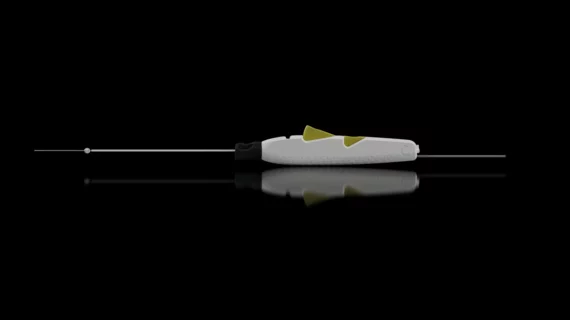Cordis gains FDA approval for new closure device, inks pricing deal with Premier
Cordis has received U.S. Food and Drug Administration (FDA) approval for its new Mynx Control Venous Vascular Closure Device (VCD) for 6-12 French access sites. The company hopes to launch the newly approved extravascular closure device in the months ahead.
The Mynx Control Venous VCD includes the same proprietary GRIP technology found in other Cordis interventional devices. According to Cordis, its sealant resorbs up to three times as fast as collagen-based offerings currently available on the market.
The FDA based its decision on initial findings from the ReliaSeal trial, which compared the safety and effectiveness of the Mynx Control device with manual compression when sealing femoral access sites during cardiac ablation procedures. Overall, Mynx Control was linked to a 100% success rate and “significant reductions” in terms of time to hemostasis, time to ambulation and time to discharge eligibility.
“Cordis is building a robust portfolio of products across the coronary, peripheral and closure markets,” Chris Bingham, vice president of global marketing and strategy at Cordis, said in a statement. “We look forward to bringing transformative innovation to market, benefitting both patients and physicians.”
“Using Mynx Control Venous VCD following ablation procedures, investigators achieved consistent and effective closure, facilitating quick and safe patient ambulation,” added John Summers, MD, director of cardiac electrophysiology at SSM Health St. Anthony Hospital in Oklahoma City, a physician familiar with the device. “The ReliaSeal results demonstrate superiority to manual compression and will allow electrophysiologists to confidently increase procedure efficiency.”
Cordis strikes deal with Premier
On July 16, Cordis announced a new purchasing agreement for vascular closure devices with Premier, a healthcare improvement company that works with more than 4,000 U.S. hospitals and thousands of other providers. This new deal gives Premier members access to custom pricing and terms unavailable to other facilities.
“This agreement provides Premier members access to innovative technology with clinically proven reductions in time to hemostasis, time to ambulation, and time to discharge eligibility, supporting improved facility workflow,” Matt Muscari, president of Cordis in the Americas, said in a separate statement.

